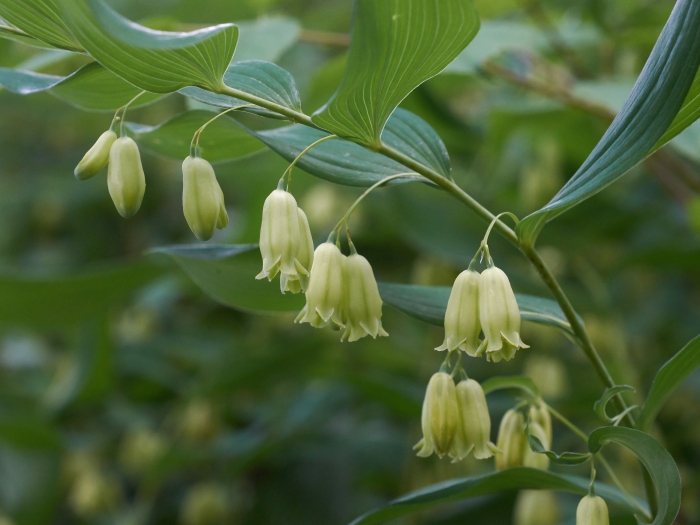Smooth Solomon’s Seal
(Polygonatum biflorum)
Smooth Solomon’s Seal (Polygonatum biflorum)
/
/

Eric Hunt
CC BY-SA 4.0




















































Estimated Native Range
Summary
Smooth Solomon’s Seal is valued for its graceful form and delicate flowers, which add a subtle charm to woodland gardens and shady borders. It is also used in naturalized areas and as an understory plant in forested settings. This plant is relatively low-maintenance, requiring minimal care once established. It prefers moist, well-drained soil rich in organic matter and thrives in part shade to full shade. While it is not prone to serious pest or disease problems, it can occasionally suffer from slug damage. Smooth Solomon’s Seal is not typically invasive but can form dense colonies over time through its rhizomes.CC BY-SA 4.0
Plant Description
- Plant Type: Herb
- Height: 1-3 feet
- Width: 1-1.5 feet
- Growth Rate: Moderate
- Flower Color: Cream, Green, White
- Flowering Season: Spring
- Leaf Retention: Deciduous
Growth Requirements
- Sun: Part Shade, Full Shade
- Water: Medium, High
- Drainage: Medium, Fast
Common Uses
Bank Stabilization, Bee Garden, Bird Garden, Border Plant, Butterfly Garden, Edible*Disclaimer: Easyscape's listed plant edibility is for informational use. Always verify the safety and proper identification of any plant before consumption., Erosion Control, Fragrant, Hummingbird Garden, Low Maintenance, Rabbit Resistant, Rock Garden
Natural Habitat
native to rich, moist, deciduous forests and bluffs in the Eastern and Central United States
Other Names
Common Names: King Solomon’s Seal, Great Solomon’s Seal, American Solomon’s-Seal, Small Solomon’s Seal, Amerikansk Jätterams
Scientific Names: , Polygonatum biflorum, Polygonatum commutatum, Polygonatum canaliculatum, Polygonatum biflorum var. biflorum, Polygonatum giganteum, Polygonatum cobrense, Convallaria biflora, Polygonatum biflorum var. melleum, Salomonia cobrensis
GBIF Accepted Name: Polygonatum biflorum (Walter) Elliott